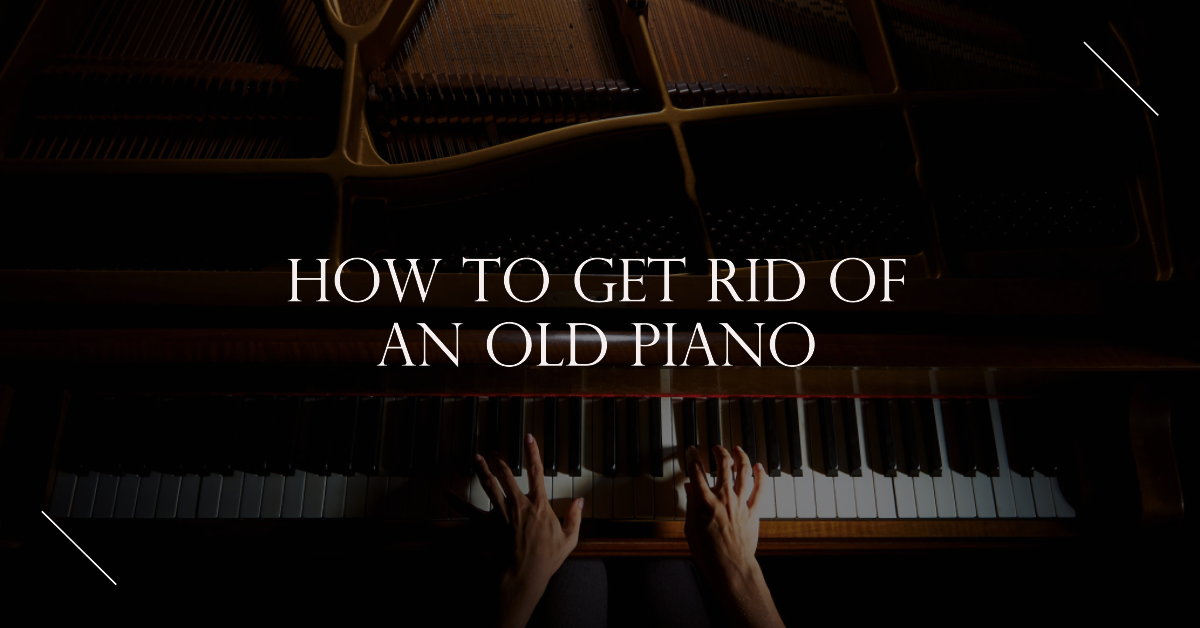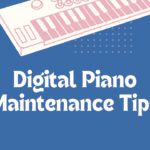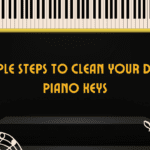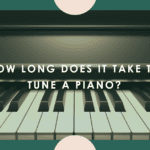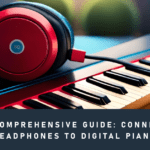How to identify if your piano is worth keeping
Do you need to ditch your old piano or upgrade? To know if it’s worth keeping, you must understand its value. Figure out the cost of restoring it. Here are steps for identifying if it’s worth keeping:
- Calculate the value.
- Look into the cost of restoring it.
- Decide if it’s worth it.
Assessing the condition and age of the piano
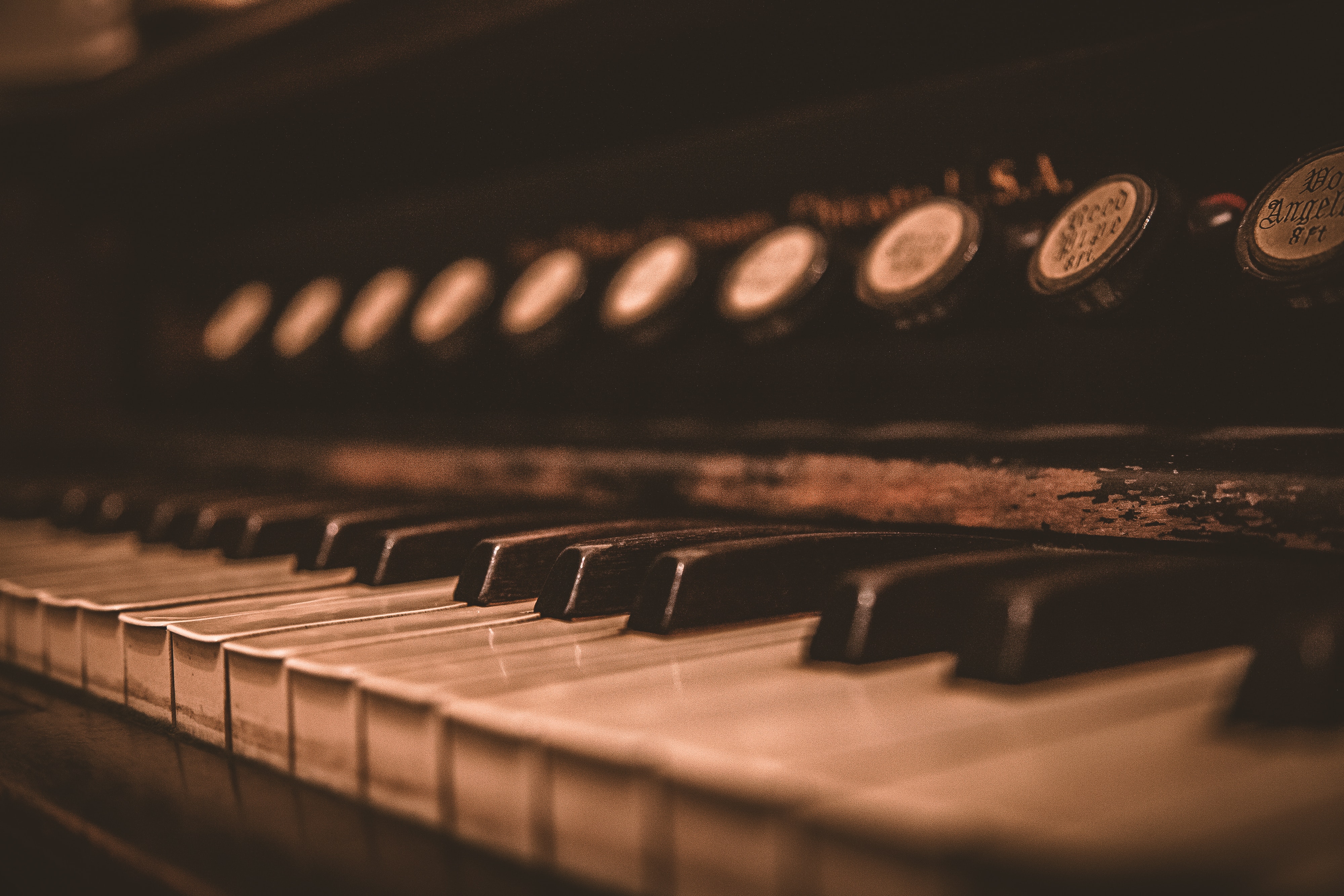
Assessing a piano’s condition and age is significant to know its value and practicality. Here are some tips:
- Check for any visible harm, such as splits or chips in the wood, rust on metal pieces, or broken keys.
- Look into the age and state of the strings and hammers. These are key parts for the piano’s sound quality.
- Evaluate the piano’s tuning steadiness and its capacity to keep a tune over time.
- Think about the make and the model of the piano. Some are more valuable and sought after.
Fact: Pianos can last a long time if tended to carefully, with some even surviving for more than 100 years!
Pro tip: Consider donating a piano to a school or community center before getting rid of it – giving it a second life!
Researching the make and model
Researching your piano is a must, if you want to know if you should keep it or get rid of it. Here’s what to do:
- Look inside it for the make and model info. It’s usually on the cast iron plate, soundboard, or back panel.
- Search online using the make and model. See if it’s popular or rare.
- Check the piano’s age. Older ones may have been made with better materials, making them worth more.
- Get a professional technician or appraiser to evaluate its value.
- Then decide if you should keep or dispose of it.
Pro tip: Don’t throw it away too soon! Old pianos can be restored and have sentimental or historical value.
Evaluating sentimental value
Before deciding whether to keep or get rid of your old piano, it’s important to evaluate its sentimental value. This comes from the emotional connection it has with you.
Think about these factors that may up its sentimental value:
- Family History: Was it owned or played by a family member?
- First Piano: Did it belong to you first?
- Special Occasions: Was it used for any important events or performances?
- Personal Connection: Do you have any special memories attached to it?
Once you’ve evaluated its sentimental value, you can make a more informed decision.
Pro Tip: If you choose to get rid of it, donate it to a local school or music program!
How to dispose of an old piano

Getting rid of an old piano? Difficult! Its size and weight make it hard. In many cases, the only way is to hire a pro piano removal service. But, here are a few DIY techniques to make it easier. Here’s how to dispose of an old piano: Tips!
Donate the piano to a non-profit organization
If you have an old piano that you don’t need or want, donating it to a non-profit is a great way to give it away and do some good. Follow these steps:
- Research: Look for non-profits in your area that accept piano donations. Reach out to learn about their donation process and what they require.
- Preparation: Make sure the piano is in good condition and playable. Clean and tune it if needed.
- Transportation: Get the piano to the non-profit’s location. You may need to hire professional piano movers.
- Donate: Once you have a non-profit that will take the piano and transportation is arranged, deliver it.
Pro tip: Donating your old piano helps a non-profit and gives you a tax deduction.
Sell the piano to a piano shop or private buyer
If you don’t need an old piano anymore, there are two main options to get rid of it. Sell it to a piano shop or private buyer, or dispose of it in a recycling center or landfill.
To sell it, research piano shops or music stores in your local area. Give them details such as age, brand, and condition to get a quote. You can also sell to a private buyer through online marketplaces or classified ads. It may take longer, but you may get a better price.
If it’s not in good condition to sell, contact recycling centers or landfills to dispose of it. Remember to arrange transportation for the piano – it can be heavy and hard to move. Hire professional piano movers or rent a truck.
Hire a professional piano removal service
Don’t be tempted to dispose of an old piano on your own – hire a pro! Professionals possess the specialized knowledge and equipment needed to transport a large and heavy instrument like a piano. They will help you navigate the disposal process. This includes determining the best disposal method for your situation and hauling the piano away. Plus, they will make sure it is disposed of in an eco-friendly way. This may include recycling, reusing parts, or safely disposing of hazardous materials (e.g. lead paint or asbestos).
So, don’t do it yourself – leave it to the pro’s for a no-hassle experience!
How to recycle or repurpose an old piano
You’ve got a grand piano, from your family, which is out-of-tune. But, you don’t have space for it. Or maybe you have an old upright, but you don’t want to keep it. Before you call a donation centre, consider the environment. Let’s look at the options for repurposing or recycling your piano.
Upcycle the piano into a unique piece of furniture
Are you looking for something unique, yet classic for your furniture? Upcycling an old piano could be the answer! Here are some ideas to get you started:
- Turn it into a bar. Remove the lid and unnecessary parts. Install shelves and make a wine or liquor cabinet. Great for an entertainment room!
- Make it a bookshelf. Remove the hinged lid and strings. Install shelves and paint it a bold color. Voila! You have an eye-catching bookcase.
- Transform it into a desk. Remove the keyboard and ancillary parts. Reinforce the desk surface and use the body of the piano as storage.
- Create a headboard. Add a wooden platform bed frame beneath the top of the piano.
Pro tip: Always check if the wood is rotting or infested with termites before upcycling an old piano. It can be dangerous to handle!
Salvage the parts for use in other projects
Got an old piano lying around? Give it a new lease of life by salvaging its parts! Here’re some ideas:
- Keyboard Keys: Make keychains, earrings, or ornaments out of them.
- Soundboard: Transform it into wall art – a stunning focal point!
- Harp: Reuse the strings and wooden harp to create chandeliers and headboards.
- Piano Cabinet: Remodel it and make a bookshelf or bar.
Before you start deconstructing, make sure you have the necessary knowledge and skills. It’s best to hire a professional piano removal company for proper disposal of the remains.
Pro Tip: A little creativity and DIY skills are all you need. Use the right ideas and tools to repurpose your piano into new and exciting items.
Donate the parts to a community centre or school
Are you done with your old piano? Donate its parts to a community centre or school! Giving it a new life and helping those in need.
Keys: Perfect for crafts, jewellery, decorations and educational activities.
Strings: Great for jewellery, wind chimes and decorations.
Hammers: Art projects and crafts can make use of them.
Donating the parts of your old piano helps your community out. Plus, you could even sell the parts online or contact local theatre groups and churches to see if they need a piano.
Preparing for piano disposal and removal
Piano removal is scary! Especially if it’s old and holds memories. But don’t worry. This guide will help you get rid of it easily and safely. Here’s the plan:
Assess the piano and determine if it is worth keeping. If the piano is in very poor condition and repair costs are too high, it may be best to dispose of it.
Find a reputable piano removal company that specializes in moving pianos. This is important because pianos are heavy and difficult to move without causing damage to the piano or your property.
Prepare the piano for removal by removing all the loose parts, including the music rack, the pedals, and the lyre. Cover the keyboard and the rest of the piano with blankets to protect it during transport.
Arrange for a pickup time with the piano removal company. They will carefully load the piano onto their truck and transport it safely to its new location or disposal site.
Disconnecting any electrical components
Before getting rid of an old piano, it’s important to disconnect any electrical parts. Here’s how:
- Unplug the piano and take out the power cord.
- Find the electrical components in the back.
- Depending on the type and model, you may need a pro or technician to disconnect wires, circuits, or capacitors.
- Follow local regulations and recycling guidelines for e-waste.
- Most cities have designated e-waste recycling centers to safely discard electrical components.
Enlisting help for safe and easy removal
Removing an old piano can be tough. It’s recommended to get professional help! Here are some tips:
- Hire a professional piano disposal and removal service. This’ll make sure your property and you stay safe.
- Measure the piano and doorways. Check if there’s enough space for removal.
- Wear gloves and use a dolly. This’ll help avoid strains and injuries.
- Instead of throwing away, consider donating the piano to a school, church, or other organization.
Proper disposal of hazardous materials, such as lead weights
Disposing of hazardous materials such as lead weights is essential when getting rid of an old piano. Here’s what you need to know:
- Lead weights are found in piano legs and are dangerous because of lead poisoning.
- Gloves and a mask should be worn to guard against lead exposure.
- Pliers or a wrench can be used to remove lead weights from piano legs without breaking them.
- The lead weights must be double-bagged in strong plastic bags and sealed shut.
- Label the bags as hazardous waste and contact a waste management facility or hazardous waste disposal company.
- Regular trash and recycling bins should never be used for hazardous materials.
Taking the time to properly dispose of lead weights and other hazardous materials will help keep the environment and people safe.
Additional considerations for piano disposal
Getting rid of an old piano isn’t easy. Before getting started, there are some essential points to consider. Let’s take a look at them! These will help you decide which is the best option for you.
Check for any local regulations or permits required
Getting rid of an old piano can be tough. First, check your local regulations or permits to see if you need any. Some cities need permits for dumping a piano. Others have special rules. Here’s help with disposal in line with local regulations:
- Ask your local government or waste management agency if you need a permit.
- If you hire a moving company, check it’s licensed and insured.
- Donate it to a school, community centre or church. Or sell it to a music school or piano store.
- If you must dispose of the piano, contact a junk removal service that specializes in big items. They can help you dump it safely and legally.
Removing the piano from your home without damaging walls or floors
Removing a piano from your home can be tricky. But, with the right tools and tips, you can do it safely. Here are some steps:
- Use a dolly or skid board to move the piano – this will protect your floors and make it simpler.
- Cover the piano with blankets or bubble wrap to protect it during transit.
- Disassemble the piano as much as you can. This’ll help you get it through doorways and around corners.
- Hire a pro if you’re unsure how to move it safely.
- Also, when disposing of an old piano, donate it to a school or nonprofit. Most organizations accept donations or can help you find a new home for it.
Don’t hesitate to seek expert advice from a piano technician or professional piano removal company.
Getting rid of an old piano can be a challenge. To prevent any accidents or harm, it is best to get help from a piano technician or a piano removal company. Here is why:
- Piano removal needs specialized equipment, know-how, and training.
- A trained piano technician or removal company can help you figure out the size and weight of your piano, decide on the best way to remove it, and give advice on disposal options.
- Also, taking apart a piano needs expertise and should only be done by an expert to dodge possible injuries or harm to the instrument.
- For a safe, convenient, and eco-friendly disposal of the piano, looking for professional advice is a must.

